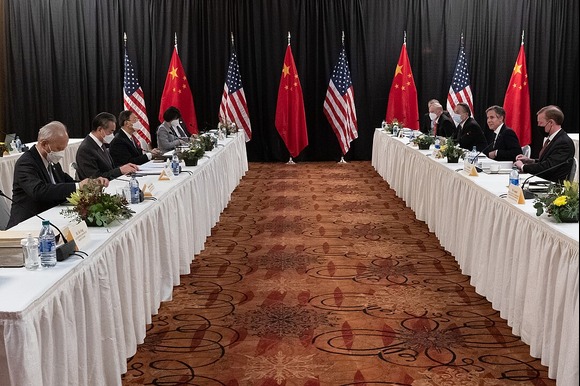A recent survey conducted by the China General Chamber of Commerce – USA (CGCC) indicates that 50 per cent of Chinese firms operating in the United States are preparing to reduce their investment focus due to the Trump administration’s aggressive tariff measures, according to a report by The South China Morning Post on Tuesday.
The CGCC survey encompassed companies from 11 different sectors, including consumer goods and services, energy, industrial manufacturing, real estate, and communication services, with financial firms comprising the largest proportion of participants. CGCC is a US-based organisation that aims to strengthen relationships between the American and Chinese business communities.
The survey was conducted in March and April and included nearly 100 Chinese companies with operations in the US. It concluded just prior to President Donald Trump’s imposition of sweeping 145 per cent reciprocal tariffs on Chinese imports. In response, China imposed its own set of retaliatory tariffs at a rate of 125 per cent. Following weekend negotiations held in Switzerland, both countries agreed on Monday to temporarily ease these tariff rates for 90 days — with US tariffs being reduced to 30 per cent and Chinese tariffs dropping to 10 per cent.
When asked about the impact of Trump’s trade policies on their US market expansion, none of the respondents predicted a “significant” positive or limiting effect. However, 50 per cent of participants expected a “moderate hindering effect” from the policies, while 17 per cent anticipated a “moderate promoting effect.”
US Trade Deficit Hits Record High
Meanwhile, the United States trade deficit soared to an all-time high in March, driven by a wave of accelerated imports ahead of the new tariffs, contributing to the country’s first quarterly GDP contraction in three years.
According to the Bureau of Economic Analysis (BEA) under the Commerce Department, the US trade gap rose by 14 per cent, reaching a record $140.5 billion — up from a revised $123.2 billion in February.
President Trump’s sweeping tariff hikes on Chinese goods, including the imposition of 145 per cent duties, spurred businesses to ramp up imports in an attempt to avoid the escalating costs. Although the newly agreed-upon 90-day truce temporarily suspends reciprocal tariffs with most of Washington’s trading partners, duties on Chinese imports were implemented in early April, igniting a trade conflict with Beijing.
Among the companies signalling an intention to scale back their US investment, 22 per cent said they plan to “significantly decrease” their investment focus, with some aiming to suspend or withdraw most of their current investments. An additional 28 per cent reported a “slight decrease” in priority and indicated that they would consider reducing some investments in response to the current US administration’s policy direction.
Trump Praises ‘Total Reset’ in US-China Relations
Despite these tensions, President Donald Trump hailed what he called a “total reset” in the bilateral relationship between China and the US following the temporary tariff rollback agreement. “The biggest thing to me is the opening up [of China],” Trump stated. “I think it would be fantastic for our businesses if we could go in and compete.”
Speaking at a media briefing, US Treasury Secretary Scott Bessent added that “both sides showed great respect” throughout the negotiation process, highlighting a possible path toward improved cooperation despite the deep-rooted economic rivalry.






